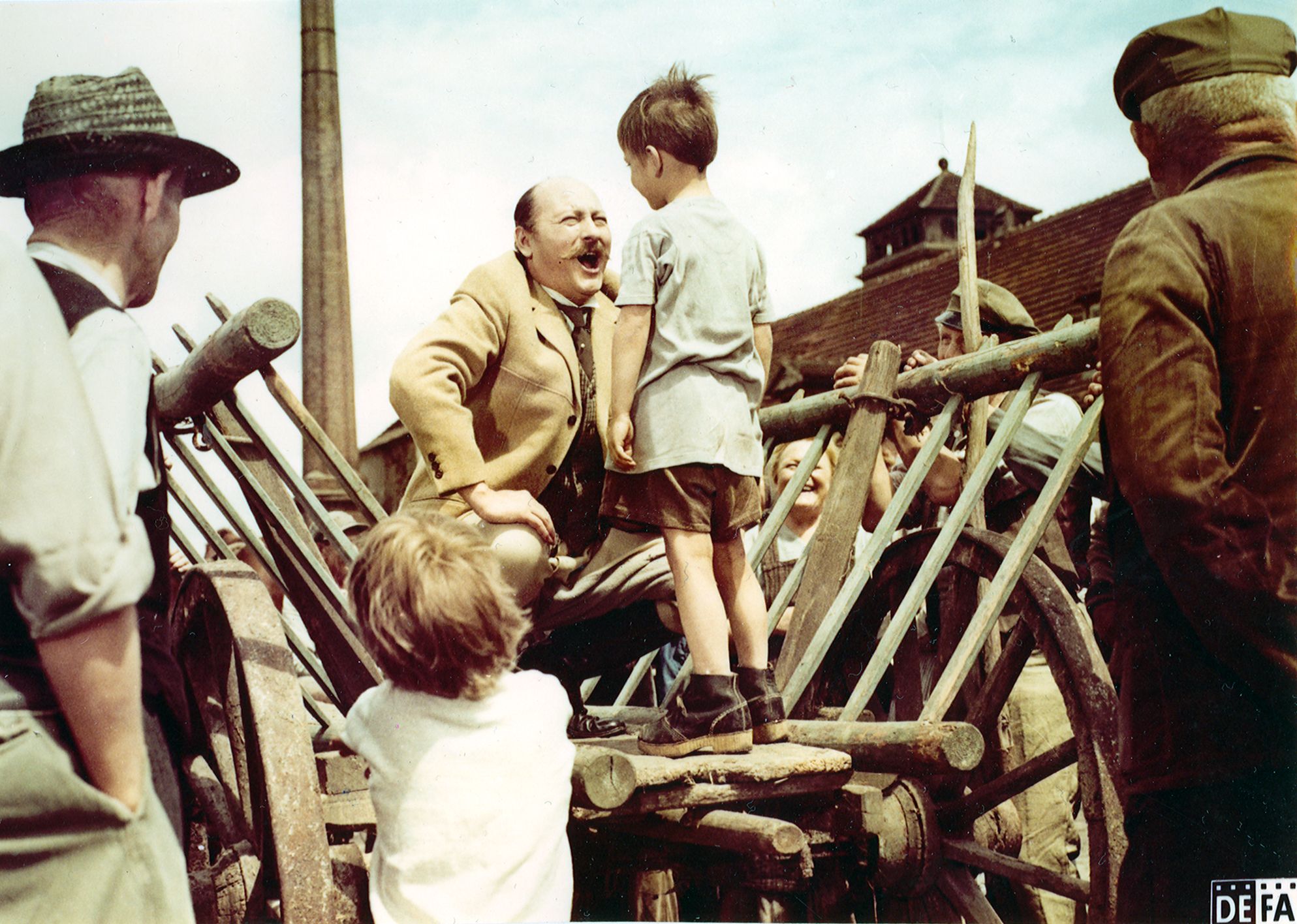DEFA 70 - Umsonst: Das zweite Leben des Friedrich Wilhelm Georg Platow, DDR 1973, R: Siegfried Kühn mit Fritz Marquardt, Gisela Hess, Jürgen Holtz, 89 Min, Deutsche Fassung
Vorfilm: Gustav J., DDR 1973, R: Volker Koepp, 19 Min, Eintritt frei, admission free!, OmeU (Engl. Subt.)
ACHTUNG: Seien Sie bitte pünktlich! Bereits ausgestellte FREI-Tickets verlieren nach Vorstellungsbeginn ihre Gültigkeit. D.h. Sie haben bei Zuspätkommen keinen Anspruch mehr auf einen Platz im Saal. Wenn es ausverkauft ist, beginnen wir pünktlich bei Vorstellungsbeginn mit einem Nacheinlass, um alle bis dahin noch frei gebliebenen Plätze zu besetzen.
ATTENTION: Please be on time! FREE-Tickets already issued lose their validity after the start of the performance. This means that if you are late, you are no longer entitled to a seat in the auditorium. If it is sold out, we will start a late admission punctually at the beginning of the performance in order to fill all seats that have remained free until then.
DEFA 70 - Umsonst: Das zweite Leben des Friedrich Wilhelm Georg Platow, DDR 1973, R: Siegfried Kühn mit Fritz Marquardt, Gisela Hess, Jürgen Holtz, 89 Min, Deutsche Fassung
Die Elektrifizierung der Bahn und die Einführung der Elektronik machen den 57-ährigen Schrankenwärter Platow "überflüssig". Er soll in ein Bahnwärterhäuschen an einem Nebengleis abgeschoben werden. In Platow regt sich Widerspruch, er will sich nicht zur Ruhe setzen. Da kommt ihm der Zufall zu Hilfe. Für ihn völlig unverständlich, weigert sich sein Sohn, ebenfalls bei der Bahn, einen Qualifizierungslehrgang zu besuchen. Der Alte sieht seine Chance und tritt beim Lehrgang unter dem Namen seines Sohnes an. Damit begibt er sich in eine Lage, die Folgen hat über die Qualifizierung hinaus. Er muss als vermeintlich zwanzig Jahre Jüngerer eine andere Lebenshaltung finden - was ihm mit Entschlossenheit und Schlauheit auch gelingt. Und am Ende demonstriert er seinen Kollegen mit einer kühnen Draisinenfahrt durch das verzweigte Schienennetz, dass er das Prinzip der neuen elektronischen Schaltung durchaus begriffen hat.
(Quelle: Das zweite Leben der Filmstadt Babelsberg. DEFA-Spielfilme 1946-1992)
ENGL.
Friedrich Wilhelm Georg Platow worked for the railways his entire working life, He took up service at the small station of Luege 34 years ago. Here he lived happily with his family, And here he suffered much grief when his wife and two children died during a wartime air raid.
Now the line is to be electrified and Platow who cannot cope with the new technology has to work on a secondary local line, Georg, his son, a railway worker as well, is to attend a training course, but Georg refuses to go. Then his father comes to a surprising and highly unusual decision, He pretends to be Georg Platow, making himself twenty years younger than he really is and registers for the course, He feels so good in the role of his son that he even falls in love again, but also Schildt, the lecturer, is making eyes at Malvine, a young, unhappily married woman, besides, Schildt knows the "old" Platow. Finally, he forgets himself and drops a brick when Schildt - rejected by Malvine - pours out his heart to him. Platow's deception is now exposed. He flees the school in shame, but Platow has learned some lessons which he can now convincingly put to the test. The outcome is that he may now work at a largish railway station, coping confidently with the new technology.
TRAILER:
---------------------------------------------
Vorfilm: Gustav J., DDR 1973, R: Volker Koepp, 19 Min, Eintritt frei, admission free!, OmeU (Engl. Subt.)
Gustav Jurkschat, 80 Jahre alt, aus Litauen stammend, lebt gemeinsam mit seiner Frau im mecklenburgischen Bad Doberan. Er berichtet Volker Koepp über sein Leben, seine Lehre als Schmied, erinnert sich an die Zeit der beiden Weltkriege, die Internierung in Russland und die Arbeit als Gehilfe auf…
ENGL.
A history of this century - personified by a most extraordinary biography. Gustav Jurkschat, born in Lithuania in 1893, recalls the stages of his life - East Prussia, the Russian Steppes, Bad Dobera.
(Source: TELL ME THE STORY OF YOUR LIFE. East German Film Biographies. DEFA Features Films, Children's Films, Documentary Films, Animated Films)
